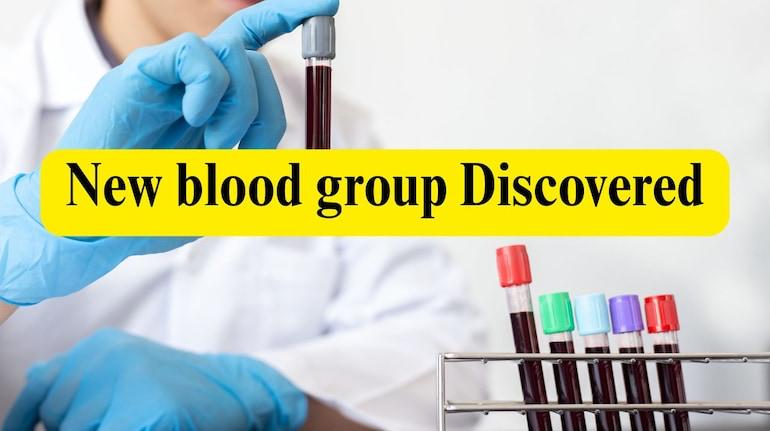 Image Source: Moneycontrol
Image Source: Moneycontrol
Key Highlights
Indian researchers have discovered a brand-new, ultra-rare blood group antigen—CRIB—in a 38-year-old woman from Kolar, Karnataka, marking a global first and advancing the field of transfusion medicine.
Named ‘CRIB’ after Cromer (the blood group system), India, and Bangalore, the site of discovery, this antigen has never been observed in any other person worldwide and was officially announced at the 35th Regional Congress of the International Society of Blood Transfusion (ISBT) in Milan in June 2025.
The unique genetic makeup makes this woman’s blood incompatible with all known blood types, including O-positive, and even close relatives, positioning CRIB as perhaps the world’s rarest blood phenotype.
The Discovery: A Medical Riddle
The woman's discovery arose during preparations for a cardiac surgery, when doctors, despite her being typed O-positive, found her blood reacted negatively with every O-positive donor, including samples from 20 family members.
The case was referred to the Rotary Bangalore TTK Blood Centre and then to the International Blood Group Reference Laboratory (IBGRL) in the UK for specialized screening.
After 10 months of genetic and serological analysis, scientists confirmed an entirely new antigen in the Cromer blood group system—thus identifying the CRIB blood group.
What Makes CRIB Unique?
The CRIB antigen is classified within the Cromer blood group system, which is one of 47 internationally recognized blood group systems and is determined by proteins on the red cell surface.
In this woman, the absence of the CRIB antigen triggers a panreactive immune response, meaning her blood is incompatible with all universally recognized donor types—there is currently no other known person with the same profile to act as a blood donor.
The discovery exposes the non-exhaustiveness of current blood classification, challenging the assumption that all humans can be typed using existing ABO, Rh, and other known antigen systems.
Scientific and Clinical Implications
Transfusion Medicine: Clinicians must now consider the possibility of such previously unclassified antigens, especially when facing unexplained transfusion incompatibility. Specialized rare donor registries and diagnostic tools are becoming vital to avoid life-threatening transfusion reactions.
Organ Transplantation: The existence of a unique antigen profile like CRIB also affects organ-matching protocols and genetic compatibility for transplants.
Genetic Screening: The finding highlights the need for more comprehensive molecular screening, especially in genetically diverse populations like India, where rare phenotypes may be underrecognized.
Rare Donor Registry: The Rotary Bangalore TTK Blood Centre, partnering with national and international organizations, has set up a rare donor registry to prepare for and manage such extraordinary cases in the future.
The Patient’s Journey
Despite her extreme blood incompatibility, the woman successfully underwent heart surgery without transfusion, thanks to meticulously coordinated global efforts and preoperative planning—underscoring the challenges she and clinicians might face in future emergencies.
Her case not only made medical headlines but is also seen as a watershed moment for Indian medical science on the world stage.
Broader Impact and Recognition
The formal announcement of CRIB at a major international conference has reinforced India’s leadership in the identification and management of rare blood types, following previous documentation of other ultra-rare phenotypes.
The case underscores the vital importance of investment in genetic typing, improved diagnostics, and training among healthcare providers.
Universal and national rare blood donor databases are increasingly essential, not only to ensure safe transfusions in unique cases but also to guide research into immune responses, pregnancy-related complications, and disease susceptibility related to blood group antigens.
Future Directions in Blood Science
With this landmark discovery, the medical community is urged to systematically investigate unexplained transfusion incompatibility and expand the focus to include rare and unknown antigens.
Ongoing research into blood group diversity will likely lead to improved personalized medicine and increased safety in transfusion and transplantation.
Conclusion
The identification of the CRIB blood group in a woman from Karnataka marks a paradigm shift in blood group science and patient care. For the first time, transfusion medicine must contend with a living example of total incompatibility across currently known blood types, highlighting the extraordinary, still-unmapped complexity of human genetics. This Indian-led breakthrough paves the way toward safer, more inclusive blood healthcare—and underlines the ongoing quest to understand the deepest mysteries of human biology.
Sources: Jagran Josh, Times of India, Economic Times
Advertisement
Advertisement






